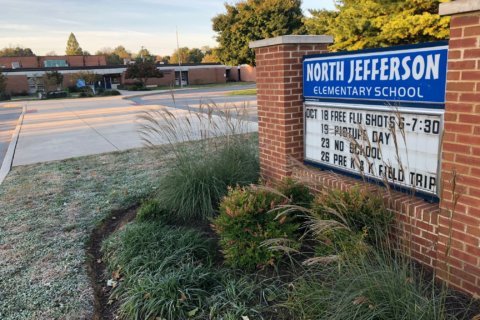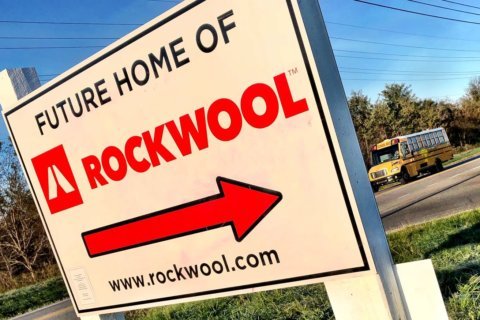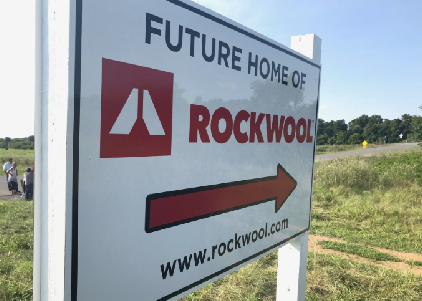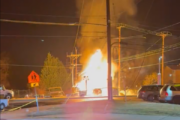A group supportive of the construction of the controversial Rockwool insulation factory being built in Jefferson County, West Virginia, has used robocalls providing the home number of a Board of Education member, after the Danish-based company filed a federal lawsuit against the board.
The robocall, sent by Jefferson County Prosperity, who “strives to support lawful business of all sizes in our county,” according to its mission statement, comes two weeks after the board threatened to condemn the land where the Rockwool factory is being built.
In a complaint filed in U.S. District Court for the Northern District of West Virginia, Rockwool said that on April 9, the Board of Education informed the company that it had long-standing plans to build a Regional Student Support Center on the former apple orchard just off Route 9 in the town of Ranson.
The robocall message begins: “Did you know the Jefferson County Board of Education is laying off teachers and increasing class sizes for our special needs children, spending millions on frivolous lawsuits in an unconstitutional effort to confiscate private property for radical political reasons?”
“If you value education over partisan political bickering you need to call Board Member Mark Osbourn at 304-XXX-XXXX, and tell him to reject the Superintendent’s radical agenda,” providing Osbourn’s home telephone number.
Dan Casto, president of Jefferson County Prosperity, told WTOP in an email that, “Robocalls are a fast and cost-effective way to communicate with Jefferson County residents.”
Casto declined to specify the scope of the robocall campaign “other than to say that a large portion of the county’s registered voters have received the call.”
Osbourn was selected because he abstained from the board vote to offer to purchase 195 acres of Rockwool land at market value, or condemn it.
Casto was asked if it was appropriate to provide Osbourn’s home phone number, given he was acting in his official capacity.
“Mr. Osbourn is a public official and should be available to his constituents,” said Casto. “If he did not want to be contacted at his home number then he should not have ran (sic) for public office.”
Casto said JCP has used robocalls previously on other issues.
“The mere fact that you are reaching out shows that robocalls work,” Casto said.
Contacted by WTOP, Michael Zarin, Rockwool’s vice president of group communications, declined to comment on the JCP’s decision to provide Osbourn’s home phone number or the tenor of the message.
Since June 2018, factory opponents in Jefferson County, and neighboring Loudoun County, Virginia, have voiced concerns, fearing air, water and sound pollution. When it’s completed, the Rockwool factory would melt basalt rock into molten lava, which would be spun into fibers used in manufacturing rock wool insulation.
Rockwool has repeatedly said the factory’s emissions will have no negative effects on anyone, citing the Rockwool factory in Byhalia, Mississippi, and 45 other plants around the world.
“Unless otherwise demonstrated, we stand by the robust body of science that underpins the current regulations and the reality that our emissions will be well under the limits considered safe for sensitive populations, including children, the elderly and asthmatics,” Zarin has told WTOP.
Claiming violation of due process, Rockwool’s suit asks for a restraining order against the Board of Education to stop any attempts to condemn the Rockwool property.
Osbourn did not return a request for comment on the robocall campaign. Citing the ongoing litigation, Board of Education president Kathryn Skinner declined to comment.








